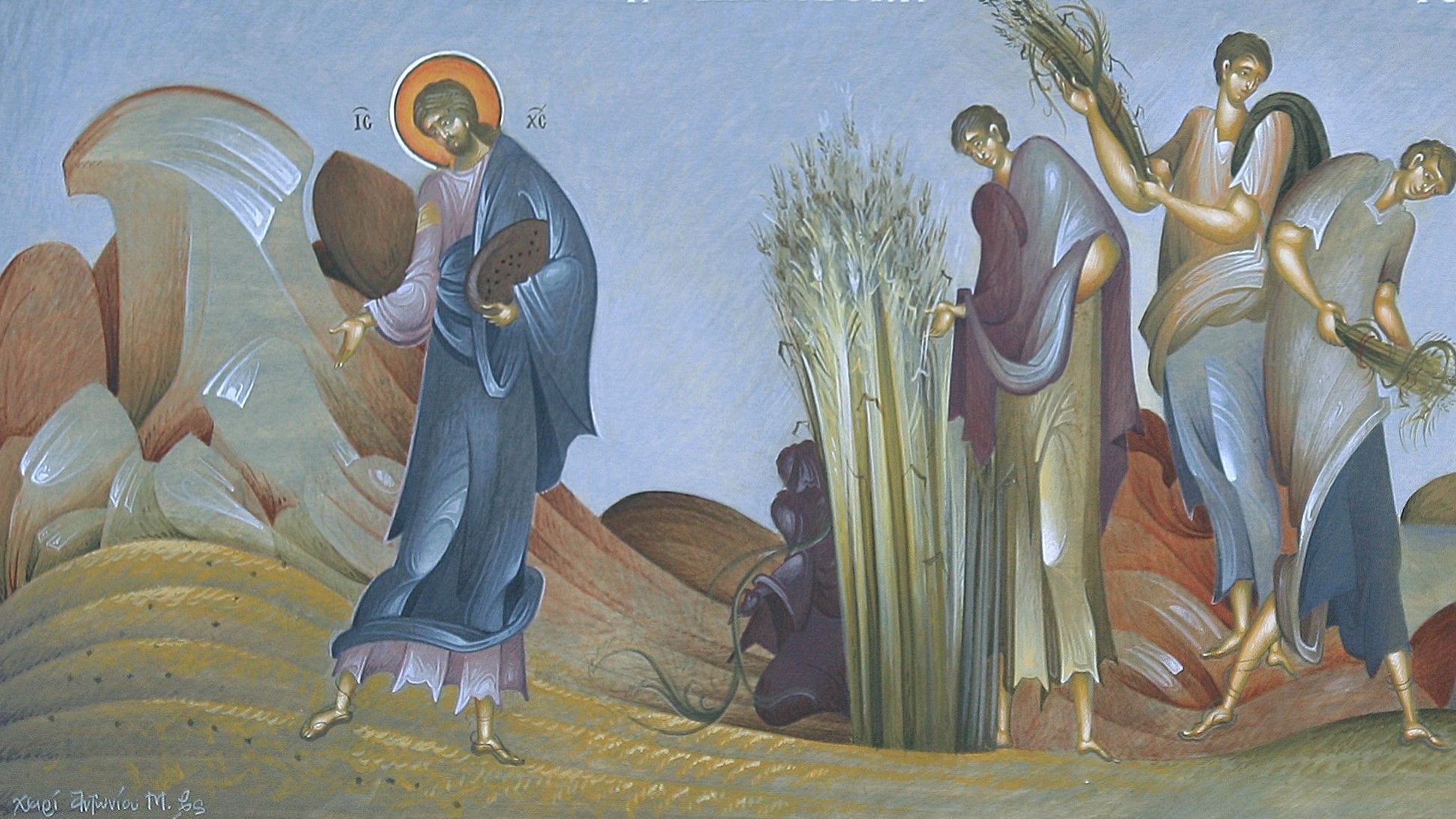
Matthew 13:1-9, 18-23
Ordinary A33
1 That same day JesusA went out of the houseB and sat beside the sea.C 2 Such great crowds gatheredD around him that he got into a boatE and sat there, while the whole crowd stood on the beach.F
3 And he told them many things in parables,G saying: “Listen!H A sowerI went out to sow. 4 And as he sowed, some seedsJ fell on the path,K and the birds came and ate them up.L
5 Other seeds fell on rocky ground,M where they did not have much soil, and they sprang upN quickly,O since they had no depthP of soil.
6 But when the sun rose,Q they were scorched;R and since they had no root,S they withered away.T
7 Other seeds fell among thorns,U and the thorns grew up and chokedV them. 8 Other seeds fell on goodW soil and brought forth grain,X someY a hundredfold, some sixty, some thirty. 9 Let anyone with ears listen!”Z
18 “HearAA then the parable of the sower. 19 When anyone hears the wordBB of the kingdomCC and does not understandDD it, the evil oneEE comes and snatches awayFF what is sown in the heart;GG this is what was sown on the path.
20 As for what was sown on rocky ground, this is the one who hears the word and immediately receives it with joy;HH 21 yet such a person has no root, but endures only for a while,II and when troubleJJ or persecutionKK arises on account of the word, that person immediately falls away.LL
22 As for what was sown among thorns, this is the one who hears the word, but the caresMM of the worldNN and the lureOO of wealthPP chokeQQ the word, and it yields nothing.RR
23 But as for what was sown on good soil, this is the one who hears the word and understands it, who indeed bears fruitSS and yields, in one caseTT a hundredfold, in another sixty, and in another thirty.”
Image credit: “Parable of the Sower” by Antonios Fikos.
